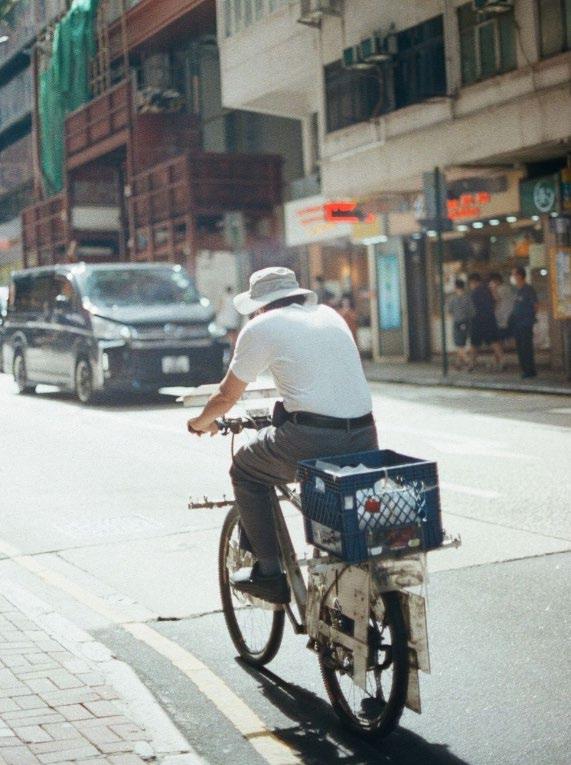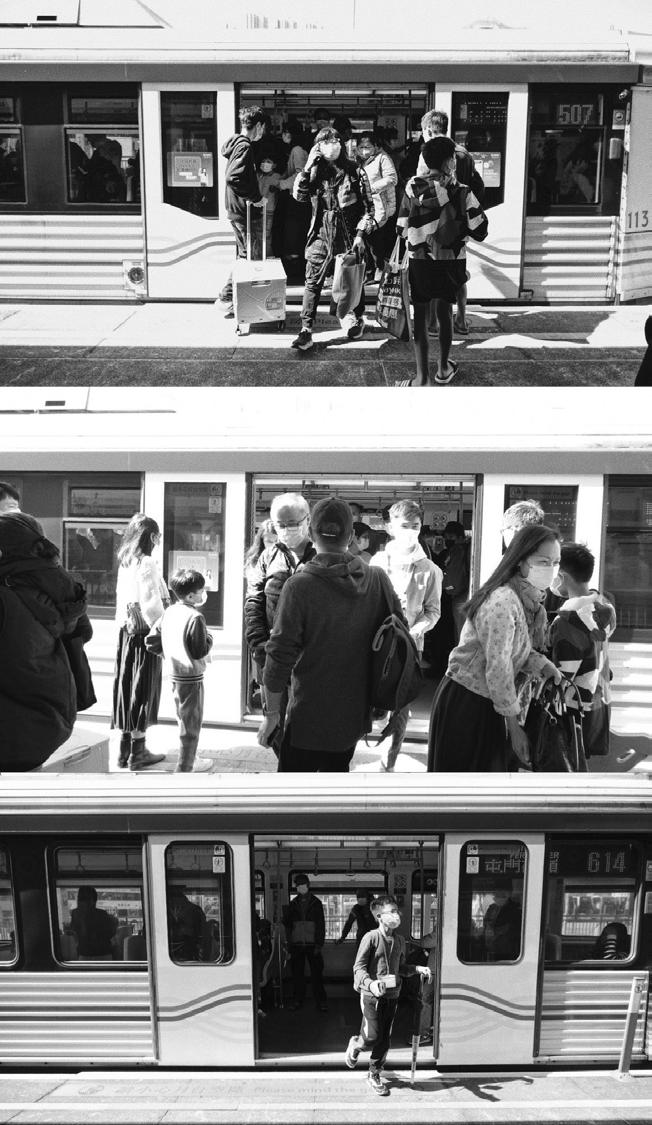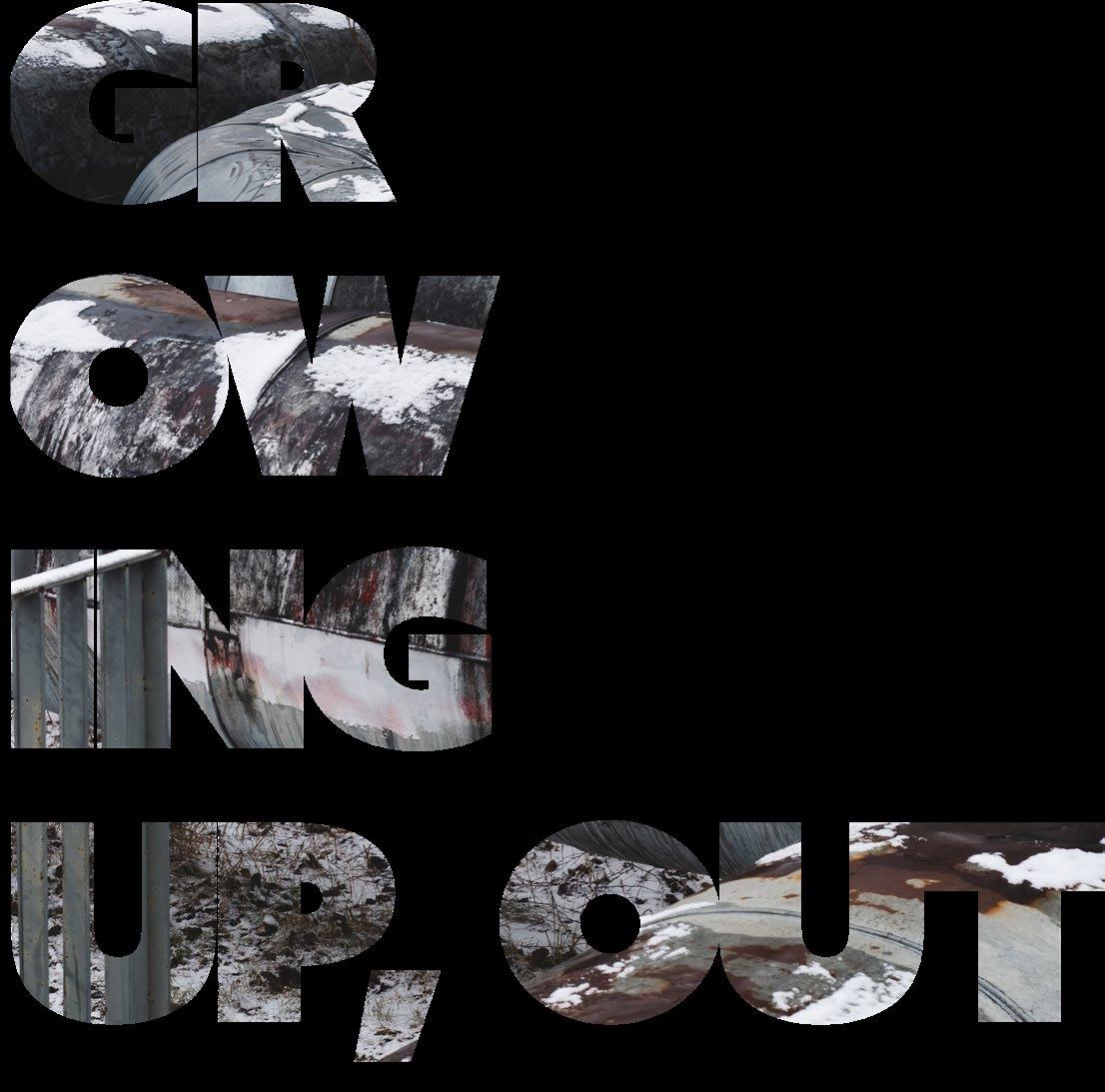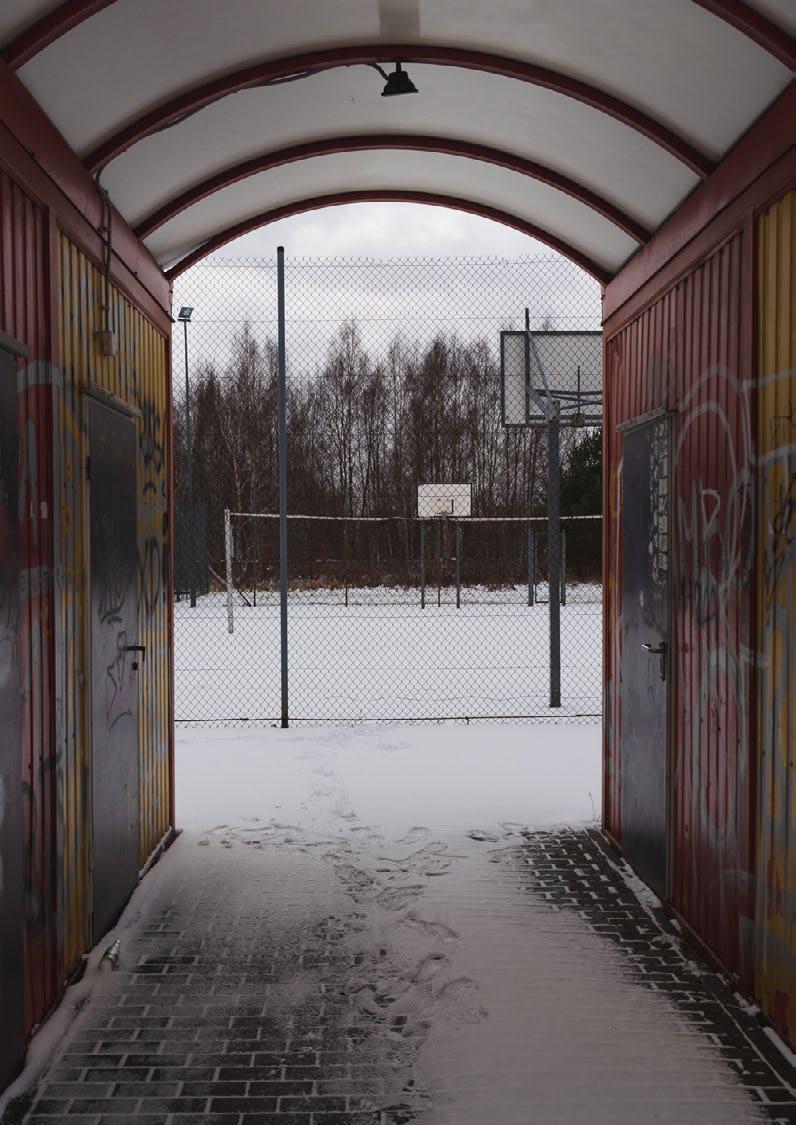
11 minute read
‘Growing Up, Growing Out’
Life continues to push against the boundaries of existence despite enormous loss and tumultuous change – that is what we learn in Edition 1. ‘Growing Up, Growing Out’ embodies the collective sigh of relief as the world opens up amidst hopeless situations, as the parallels between the good and the bad run alongside each other.
It is both a shame and a relief to look back at places you’ve grown up and out of. We are built from the scaffolds of the memories we’ve left behind us. The places we no longer fit into but used to feel so, so comfortable in. For many of the amazing people I have met this year, this has meant an extreme shedding of the comfort zone, and through this magazine, I have learnt the potential that can be reached by simply doing things instead of dreaming about them.
Advertisement
Growing out, to me, is an ache or yearning for bigger things that are never satisfied.
Most times, we grow out of our old selves for the better. The voices in this issue are curious, restless, waiting to emerge from the soft white underbelly of the artistic world to bring us previously brushed-off perspectives and thoughts:
‘I did not realise that being strangled by the scent of gunpowder all my life made me unique, until I left Baghdad for Hong Kong’, Al’Awadi writes, showing us another side of growing out, but not necessarily growing ‘up’ significantly. He further captures this perfectly with: ‘growing up was a process that was already done; I’ve been hit by life so many times that I had been an adult since the age of ten’.
In retrospect, the notion of home can sometimes get confusing and undefinable: “I don’t think I’m the kind of person who can keep pretending to be my old self: a pretender”, Brooke Nind writes in ‘Looking for Home’. Luke Tan’s concept of home is a bit more tangible, as he writes in ‘bloodlines’: ‘let it flow / float back to a fish head (soup) and the homeland 阿姨 told me to circulate: raise my hands when i bleed’.
There is a confusing liminal space that is a common experience to most growing up, that unsureness in where you belong, the boundaries between your past and future a wavering line. Dora Gan’s ‘differentiate’ shows us the darker side of growing up and girlhood; Amber Zou once again explores this process of growth in ‘to be consumed’: “she has been thrown / into a safe / haven of floral blossom / begged to be immersed / into fig body”.
Growing up often also entails leaving behind the people and places you’ve loved, but that doesn’t limit you from rediscovering them. Joles shows this to us through their beautiful series of photos from their home city Hong Kong. Through the alienation and sonder – the realisation that there are billions of people on this planet living their own lives – explored through Stella Liu’s nostalgic street photography, we realise just how large the universe is – of these people growing up and out, up and out, pulsing against the limits of life, creativity remaining amidst crises.

The process of growing up / growing out is not a linear narrative. It will be tucked between a billion lives before intersecting in this multitude of circumstances that have come together to form this almost unworldly experience: the first edition of our magazine.
Looking back on how there were so many places you’ve had to grow out of, the future selves you’ve grown into is a collective aching, a midnight hum that lies under the surface of our collective psyche. However, our collective aching ends here: for me, XinSai was a product of the built-up years of this ache. I’m pretty sure it started with a Snap to Jed, then came the meetings we had while speed-walking to KungFu Tea, impromptu rooftop discussions that devolved into more extensive plans, our imaginations running wild and that little spark of ‘I am finally doing something worthwhile’ burning inside my mind. I am so extremely, extremely grateful for our team, and it has been such an honour to work with such exuberant, passionate people who always seem to see the best in everything – the XinSai family is one I will always cherish. You can find my full notes of gratitude at the end of this magazine. (I guess what they say is true, guys, working with your friends is not work. Aren, Maja, Houda, Chloe, Rebecca and more – I love you guys <3). Most importantly, I would like to thank our contributors: it’s a privilege to be able to write this Editor’s Note alongside so much talent, as well as our hundreds of supporters for allowing us to have this platform. XinSai would not have grown this much without you.
Thank you all for everything, – Joy Chen :-)
A seed that continuously germinates as it is being sprinkled with creativity and fed with proper shines of primary colours amalgamated with words that are from the within — this is what XinSai is slowly becoming to be.
When we first started creating XinSai, we wanted to achieve a lot of things, things that people might consider as too ambitious. In a sense it really took tons of procrastination sessions and pure dedication to achieve these. Luckily, we were able to find ambitious people who, coincidentally, have some splash of quirkiness in their personalities, which really helped us work well together as a team. In all honesty and quirkiness aside, managing a whole team is and will probably never be easy. It takes tons of patience, eagerness, and love for craft. However, despite all the turmoil that happened in the making of this first edition, we have successfully finished making XinSai’s first petal – the first edition.
As an international student studying away from home and an advocate for the protection of Domestic Helpers, this edition’s theme travels back to my heart through my pulmonary veins into the left atrium, to the left ventricle and out to my body’s tissues through the aorta. In other words, this topic pumps my heart. Hence, my combusting excitement for everyone to see our first edition! However, I would not let this opportunity slide without thanking the first person who planted and watered this seed which is in the process of germination, Joy Chen, my co-founder. Joy’s palpable dedication to the arts and her reliable work ethic make this magazine work. I also want to send a whole bouquet of gratitude to Hailey Wong, our Managing Editor, for being the backbone of our magazine, especially when I.B. works start to consume us. Lastly, all love and thanks to the whole XinSai team who all made this first edition possible.
As we put an end into this Chapter, I cordially invite you to be part of our journey as we let XinSai grow another petal – another edition. Thank you for being part of this journey, and I hope to see you in the next one.
XinSai Magazine editions will come and go, but “Growing Up, Growing Out” will always be our first edition. It’s the edition where we found a sense of belonging in this newly formed team, and it’s the edition where chaos and order meet for the very first time.
To me, growing up and growing out means being comfortable with the uncomfortable. Being a student-athlete is exhausting (but rewarding). I’ve been playing squash for ten years now, and I’m still learning to be comfortable within the claustrophobic four walls. I’m still learning to juggle between academics, squash and mental health despite how impossible and daunting it is sometimes. Getting home by 9:30 PM and finishing assignments after I had taken a shower and had my dinner is something I’ve been doing since secondary school. However, I still have yet to be brave enough and strong enough to do it all without feeling like I’m always trying to catch up instead of being on track or ahead. But the best yet scariest part about growing up and out is never truly knowing what comes next. Just like how I had no clue that filling out the Google Form to be a part of XinSai was one of the best decisions I’ve ever made.
I’ll be honest. I joined XinSai because the name sounded, for lack of a better term, very cool (and because it combines two things I am incredibly passionate about — English Literature and mental health advocacy). But now that I’m a part of it, it’s so much more than that. I had never met a more enthusiastic, creative and driven team of individuals until I joined XinSai. Our spare time in this hectic, fast-paced student lifestyle is spent attending online meetings, organising spreadsheets, and checking everything off the never-ending to-do list. On some days, our group chat notifications can start buzzing at around 7 in the morning and only start calming down at around midnight. Weekly Sunday meetings can go on until 11 at night as we try to fix every single issue we have in internal affairs.
Joy, Jed, thank you for making XinSai what it is today. Imagine what we would have missed out on if you never took the first step into building something so creative and beautiful.
The best part about XinSai is knowing that this is our personality on the table, laid out as a Magazine edition. Everything you’re about to read in this Magazine is a collaborative work between the Executive Team, writers, artists, photographers, editors and designers, who all have their own interpretation of growing up and growing out. We all collectively agree that this Magazine is as good as it gets, despite it being our first try, and we hope you will enjoy reading this as much as we do.
Saul Bellow once said, “art is order, made out of the chaos of life”. We proudly present “GROWING UP, GROWING OUT.”
Thank you for being a part of the beginning of XinSai.
With love, Hailey

“Returning from battles, I had no clue; why I wasted my life in the struggle.”
A line from a medieval Arabic poem that I felt represented the deluge of growing out.
I did not realise that being strangled by the scent of gunpowder all my life made me unique, until I left Baghdad for Hong Kong.
Leaving was difficult, more than I ever thought possible. I was appreciative of the opportunity to go abroad to study, but I had so much here at home, so much that departing felt like leaving a piece of myself behind. It wasn’t just the friends, or the food, or the culture, or the family, or the nature: it was the souls. I felt I was betraying the souls of dearly departed friends by leaving. What would they think of me? So far away from them and so forcefully detached, what if they thought I had abandoned our common dreams? What about my friends and family who are alive? How would I simply let them go when we had shed so much blood and tears together?
In truth, all of these questions to myself were rhetorical: I knew I had to leave, but the sense of guilt around leaving everything behind haunted me well into my journey in Hong Kong.
My body had left, and I could sense that even with my eyes closed; the air felt nice and no longer smelled like tar and dust; the sun didn’t naturally dry my hair after my morning shower, and I didn’t wake up every morning to the sound of Quranic recitations. In Hong Kong, sometimes I felt like a child, there were days when I’d wake up, and my biggest concern was an innocent crush and not trying to manage the lives of two dozen starving families, or having to explain to my parents why they’re getting death threats in the middle of their shifts. It was new for me, I had never felt so free. But while it’s true that you can leave Iraq, it’s very hard for Iraq to leave you; things kept coming up, and responsibilities I thought I had concluded kept creeping up on me like demons creeping their heads through the gates of hell, summoned by my misery.
In our glorious Arab homelands you could not be a child, at least not mentally. I had my childhood stripped away by artillery shells and tank tracks; on them were the first words I learned in English: “MADE IN USA”. My misfortune was not just being born at this particular place, but also at this particular time; I routinely spoke with people ten or twenty years older about their childhood, and there’s always a moment where they realised I could not relate to their memories. “Ah, you didn’t even have a childhood” was what an acquaintance I met at Baghdad International Airport told me.
Growing up was a process that was already done; I’ve been hit by life so many times that I had been an adult since the age of ten, already bragging about how nothing could phase me;

Written by Al ‘Awadi
Photography by Wiktoria
Sadowska
As one of my favourite modern poets, Samir Sabih, put it: “Who spent his life no man’s land, sleeping in mud with barbed wire for a blanket, what cares he if the flowers are blooming or not?” I felt a sense of dissociation that stemmed from misery, as if I wasn’t supposed to enjoy what other kids enjoyed. The hard part was growing out, I don’t think I stood out that much, but I had been struggling to reconcile. Am I now just another teenager concerned with parties and movie nights? Where did the old me go? How could I just be the same as everyone else when my past still stood like a nightmare over my present? And when I had to be reminded of it every single week.
I had to know who I was to be, and I struggled with that decision for the longest time. That was until I returned home for winter with this amicable Hong Kong experience with me. At first, I thought Iraq would rope me back in; how could I not when my friends greeted me like a triumphant, returning Napoleon? And when my family embraced me as if I had returned from war?
But it didn’t, leaving again was pleasant; I loved Hong Kong and wanted to go back to her, but I could only do that after making sure that I had satisfied every single dependency and responsibility I had in Iraq to the fullest, or else I’d live with the everlasting guilt once more, and oh did I manage to do that wonderfully! I went around more than eight cities in less than sixteen days and ensured that I had met everyone and discussed all my business or grievances with them, leaving no desire unquenched.
Al’Awadi is a student from Iraq at Li Po Chun United World College, aged 18. Loves poetry and political economy. Writes, sometimes emotionally and other times academically. Fluctuates between unfettered arrogance and emotional vulnerability, he seems unsure of what he wants but knows he wants it. If asked about his beliefs about anything, he’d tell you that his idols are dead and his enemies are in power.
Origin [Pochodzenie]
The project takes you to one of the Polish cities Łódź where my dad was born and brought up by his single and deaf mum. The photos were taken last year but at first sight they look like from the late 80s when my dad used to live there. As his daughter, I am strongly attached to all the places he used to tell me about. I was born in 2004 but thanks to his stories and the fact that his flat hasn’t changed ever since, I am able to feel the atmosphere of growing up in the post-communist times in Poland. His home is a true relic of PRL (the name of our country at that time). In his adult life, my dad has created a wonderful family and currently lives in his own house in Ostrowiec Świętokrzyski. Nonetheless, every time we travel to Łódź, it is a truly sentimental time for him as his life has changed so much and he has achieved so many things.


“It’s My Party and I’ll Cry if I Want To”

This is my first project consisting of autoportraits. It shows the two sides of turning 18 and officially becoming an adult in my country. Behind parties, freedom and all the glitter there is also the loneliness in facing the changes. You have to learn to be independent while starting an adult life. You will sometimes have to celebrate by yourself. In the end, it is time to create your own life.
By Wiktoria Sadowska








